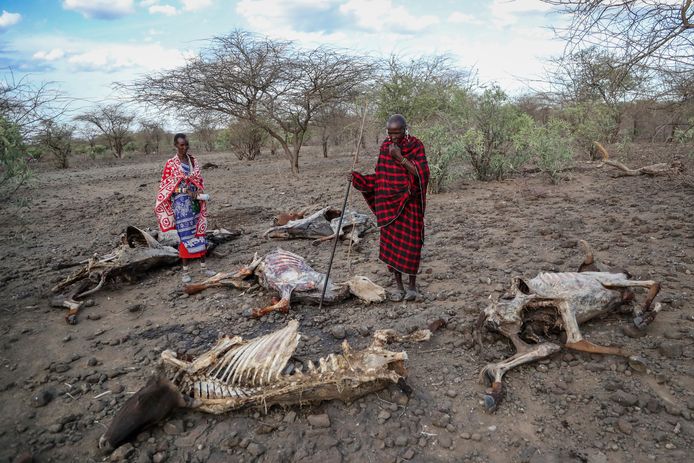The first African climate summit begins Monday in the Kenyan capital, Nairobi. During the three-day meeting, policymakers will discuss renewable energy and financing climate-friendly projects on the continent.
The summit host, Kenyan President William Ruto, says he wants to offer “African solutions” in the run-up to the COP28 climate summit to be held in Dubai in November. The summit is expected to be attended by African heads of state, representatives of other governments and the United Nations.
With a population of 1.2 billion people spread across 54 countries, Africa emits only 3% of the world’s total greenhouse gases, according to the United Nations. According to the NGO Oxfam, the G7 countries and Russia alone are responsible for 85% of global emissions since 1850 – equivalent to 850 times the emissions of Kenya, Ethiopia, Somalia and South Sudan combined.
Climate crisis: drought and hunger
At the same time, Africans are suffering more from the consequences of the climate crisis than residents of industrialized countries. For example, the Horn of Africa is experiencing its worst drought in forty years. Millions of people also suffer from hunger in the Sahel region, which extends from Senegal in the west to Djibouti in the east of the continent.
In addition, extreme weather events such as hurricanes and floods are becoming more common. Seven out of ten climate crises identified in a study by Oxfam are in Africa. However, in 2021, rich countries paid just $2.4 billion (€2.2 billion) to finance climate-related development in Ethiopia, Kenya, Somalia and South Sudan.
This is far short of the $53.3 billion (49.4 billion euros) that East Africa says it needs annually to meet its 2030 climate goals, the report showed on Monday. Unfair share From Oxfam. According to Oxfam, climate change and its consequences are the main cause of hunger in the region. Prolonged drought and erratic rains have killed nearly 13 million animals and destroyed hundreds of thousands of hectares of crops, leaving millions of people without income or food.

The NGO points out that girls and women are the first victims of the crisis: “When food is scarce, mothers often eat last and eat the least. Girls are the first to be expelled from school or married off at an early age so that there is one less mouth to feed.
Great potential
A draft version of the summit’s final declaration, seen by Agence France-Presse, highlights Africa’s great potential in renewable energy, its young working population, and its natural resources. For example, the continent holds 40 percent of the world’s reserves of cobalt, manganese and platinum, which are essential for the production of batteries and hydrogen cells.
At the summit, African leaders will once again remind industrialized nations that Africa currently receives only a small fraction of the resources it needs to address the climate crisis. This relates, for example, to financing climate projects in the Global South.
Climate disasters cost between $7 billion and $15 billion annually
According to estimates by the African Development Bank, climate-related natural disasters are already costing countries between $7 and $15 billion annually. Demand for debt relief is also likely to play an important role in the negotiations.
Oxfam urges African leaders to make their voices heard and hold rich, polluting countries accountable. “Even by their generous accounts, polluting countries have only provided peanuts to help East Africa scale up mitigation and adaptation efforts. Nearly half of the money (45 percent) they provided was food,” said Fati Nazi Hassan, Oxfam’s Africa director. loans, plunging the region into more debt.”
Free unlimited access to Showbytes? Which can!
Log in or create an account and never miss a thing from the stars.


